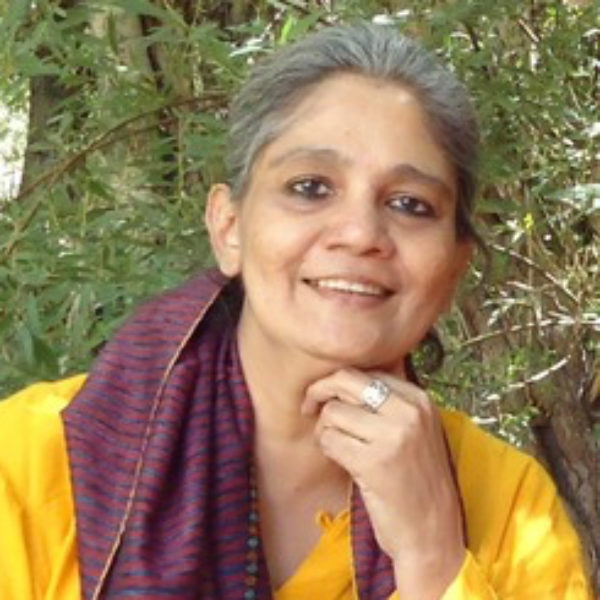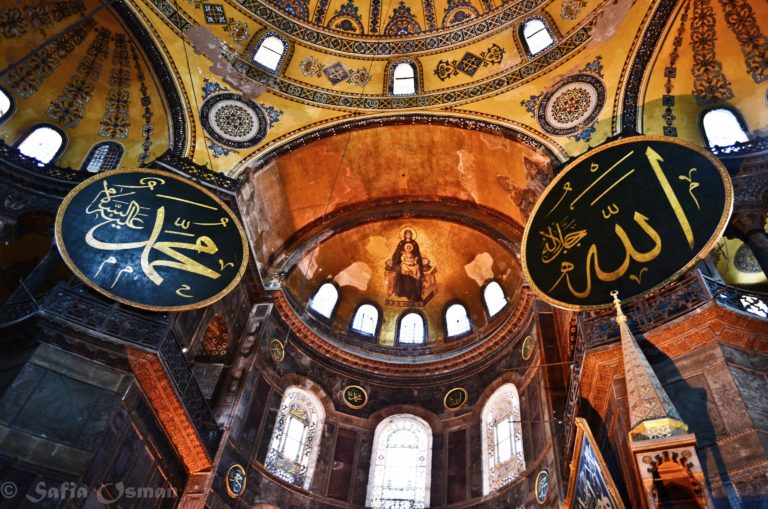No Room at the Inn
Some 15 years ago I did my “no room at the inn” bit. My husband, calling from a train station in Mumbai, suddenly announced two weeks before Christmas that he had with him an Iranian woman and her two children with no place to live, and asked if he could bring them to stay with us?
I looked around the living room of the little apartment we were then living in, which would have to accommodate the three of them. Books and papers for my research competed for space with those for the current college course I was teaching. Soon there would be piles of examination papers to be evaluated added to the already teetering piles.
I took a deep breath. “How long will they stay?” was followed by a loud “No!” when he mumbled, “A month or so.”
Or so? “Or so” can end up being many months, perhaps years, I mentally muttered.
In my defense, it was a time of teaching extra courses to earn the money to pay for my father’s illness and hospitalization, and making regular visits to his hospital in another distant suburb while preparing to complete and submit my thesis at the same time.
“They have nowhere else to go,” he added, his voice conveying a mix of reproach and appeal.
And so Nusha, her son Hadi (aged 14), and eight-year-old daughter Mahsa and several large bags entered our home. At first they were as uncomfortable as I was. But in just moments we arranged makeshift beds, worked out bathing schedules, and got to cooking that night’s dinner. Mahsa smilingly came into my kitchen, perched on a stool and filled me in on her life in the year they had been in India.
Her father had died in an accident, her mother could not live in Iran for many reasons, both personal and political, and someone suggested they go to India. And now, Mahsa said in all seriousness, their “wheezer,” which allowed them to stay here, would soon “aspire” unless they could get an “ascension.”
In the days that followed, Mahsa, who had the natural chatterbox charm of a crazy, joyous young angel made sure she well and truly entered our lives.
While her mother and brother were often out, Mahsa opted to stay behind with me. I soon learned to tune out her constant chatter as I worked. It did not seem to matter that I had my head in my books, as long as she could talk. She begged to go with me to see my father in hospital, danced for him and made him laugh with her stories about her teachers. She completely charmed my mother, telling her she gave the best hugs in the world.
Each night before she fell asleep, she did her bedtime prayer routine on her knees (“Saw it in an English film…”) when she told God all the events of her day. It was always a very long, one-sided conversation with excruciating detail, but God is compassionate and merciful.
A day before Christmas, Mahsa, while helping me to set up and decorate our giving tree, went, “So when do we make the baby’s home?”
“What home?
“You know, the home for Isa Masih (Jesus Christ) to be born.”
She was really disappointed, even teary-eyed when I said that we did not have any figures for a crèche or nativity scene, so when my sister-in-law phoned and hour later, laughing about her forgetful mother giving them yet another bunch of painted clay figurines, I said, “Mahsa and I are coming right over to get them.”

It was past midnight when we were done. Our stable was a smallish cardboard gift box, with just enough space for Mary, Joseph, and the waiting straw-filled manger. All the others — ox, ass, shepherds, sheep, three wise “mullahs” — waited outside, with the heralding angel propped aslant, somewhat drunken-looking I thought, against the box. Mahsa assured me, “It won’t rain on them tonight,” and also that she had checked with them, and they were all fine with this arrangement.
As we made for bed, she suddenly asked if we knew a “Christian” prayer that she had learned in Bible class at her school that started “Our Father…” We did, and she was happy.
She led us in reciting it, and I choked up as my new-to-English angel solemnly asked God: “And forgive us our Christmases as we forgive those who Christmas against us …”
The words suddenly took on a whole new meaning for me.
I had started as the unfriendly inn keeper in the story, but maybe I could find a new role. I wondered, “How about the ox?” It was all I could think of, bone weary after the cooking, the tree, the tears, the chatter, the travel, the crèche.
There was still one more thing to do. After the others had gone to sleep, I tip-toed to the crèche and placed the brightly pink painted Baby Jesus figurine on his clay bed filled with spiky yellow-painted hay, then totally exhausted, fell into a deep sleep.
At five o’clock on Christmas morning Mahsa burst into our room, crying and begging me to come with her to “the baby’s house.” Worried about what I might see, I groped for my spectacles and rushed after her to the cardboard crèche. Everything looked just fine.
But Mahsa pointed to the newborn, “Why is he facing out? He is a little baby, and wants to look at his Maman and Papa!” So we turned him around to look at Mary’s smiling face, her outstretched arms seemed to open wider in joy. Mahsa too smiled her thanks at me and crushed me in a fervent hug, knocking off my glasses, which broke.
Nusha and her children left India after a few weeks. We did not hear from them again. I still have the painted clay figures, but the angel is missing — I gave it to the real one when she was leaving.
Each year, people visiting ask why our Nativity group, with Baby Jesus “turned around,” looks kind of different — and we have our own special “Night Before Christmas” tale to tell.

